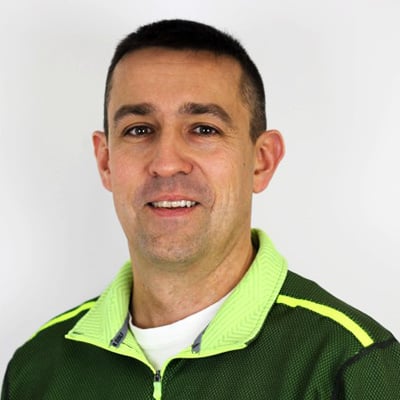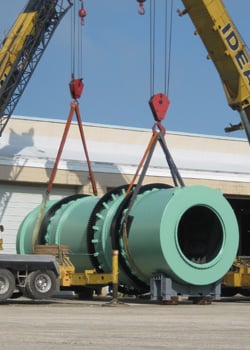For many companies, the purchase of an agglomerator is a huge acquisition. Considered an industrial workhorse, agglomerators can perform a wide array of processes and benefits. Consequently, this versatility may raise a lot of questions or even leave a customer wondering where to begin. Since the process of buying an agglomerator can be a formidable undertaking, we have compiled a list of basic questions that typically accompany the purchase of this equipment.
Buying an Agglomerator? Ask These Questions First:
What is the material?
Without a doubt, the intended agglomeration material is the fundamental element and starting point to the agglomerator purchase process. FEECO has experience with thousands of materials, enabling us to provide insight even before testing.
Example: Let’s say an ore processing facility is interested in buying an agglomerator and gold ore is the intended material. While FEECO has not yet tested the material, our experience lets us know that a heap leaching drum or an ore drum (also known as a rotary ore drum) has proven effective in many other ore processing facilities.
What is the material problem?
The equipment and processes created by FEECO are customer driven, making client input regarding material problems extremely valuable during the purchase and design of an agglomerator.
Agglomerators are used to process materials in a way that resolves issues concerning waste, handling, performance, and product characteristics. By learning more about the customer’s process and material, FEECO is able to customize an agglomeration solution that will solve the material problem.
Example: The gold ore fines are not uniform in shape and size, making the leaching process more difficult for the ore processing facility.
What is the intended goal?
Sharing material goals allows FEECO to design equipment customized to meet your desired results. Customer goals may include a uniform coating, a specific final pellet size, a high material feed rate, or easier material handling. All of these goals shape FEECO’s testing, process design, and equipment customization.
Example: The ore processing facility would like more consistent fines that allow for a better percolation of leaching solution through the material.
Will the material agglomerate?
Variations naturally occur in any type of material. Even a slight variation will make a huge difference in how a material agglomerates. Therefore, agglomeration testing such as that conducted in the FEECO Innovation Center is always recommended. Our agglomeration capabilities will provide answers to your material questions, as well as determine material characteristics such as moisture, particle size, agglomeration capabilities, and so forth.
Example: After testing, FEECO determined the gold ore fines were capable of agglomeration. Based on the testing results and previously disclosed material problem, FEECO also determined that adding a heap leaching agglomerator would increase efficiency and gold recovery.
What are the next steps?
Once a customer has provided sufficient information, goals, and a material sample for testing, FEECO can customize an agglomerator to fit a customer’s specific needs, helping you make informed decisions for your material problems.
Example: As an added level of efficiency, FEECO added a leaching agent to the heap leaching agglomerator. This early start in the leaching process added more process efficiency and maximized the recovery of gold even further.
From the recovery of precious metals to improved product characteristics, FEECO’s agglomeration solutions will help you optimize your material and processes. For more information on agglomerators, contact us today!



